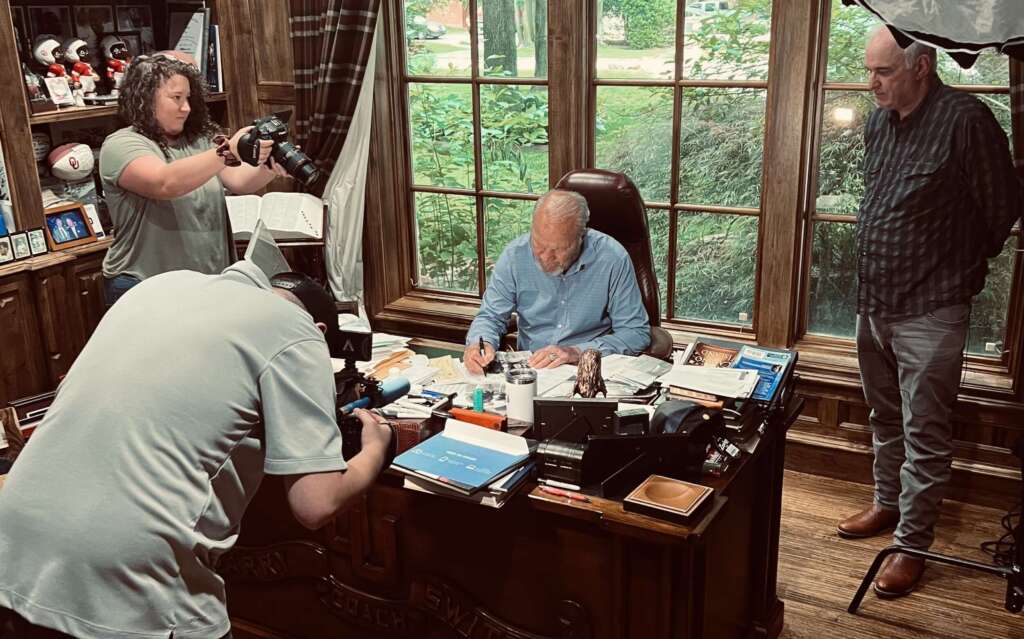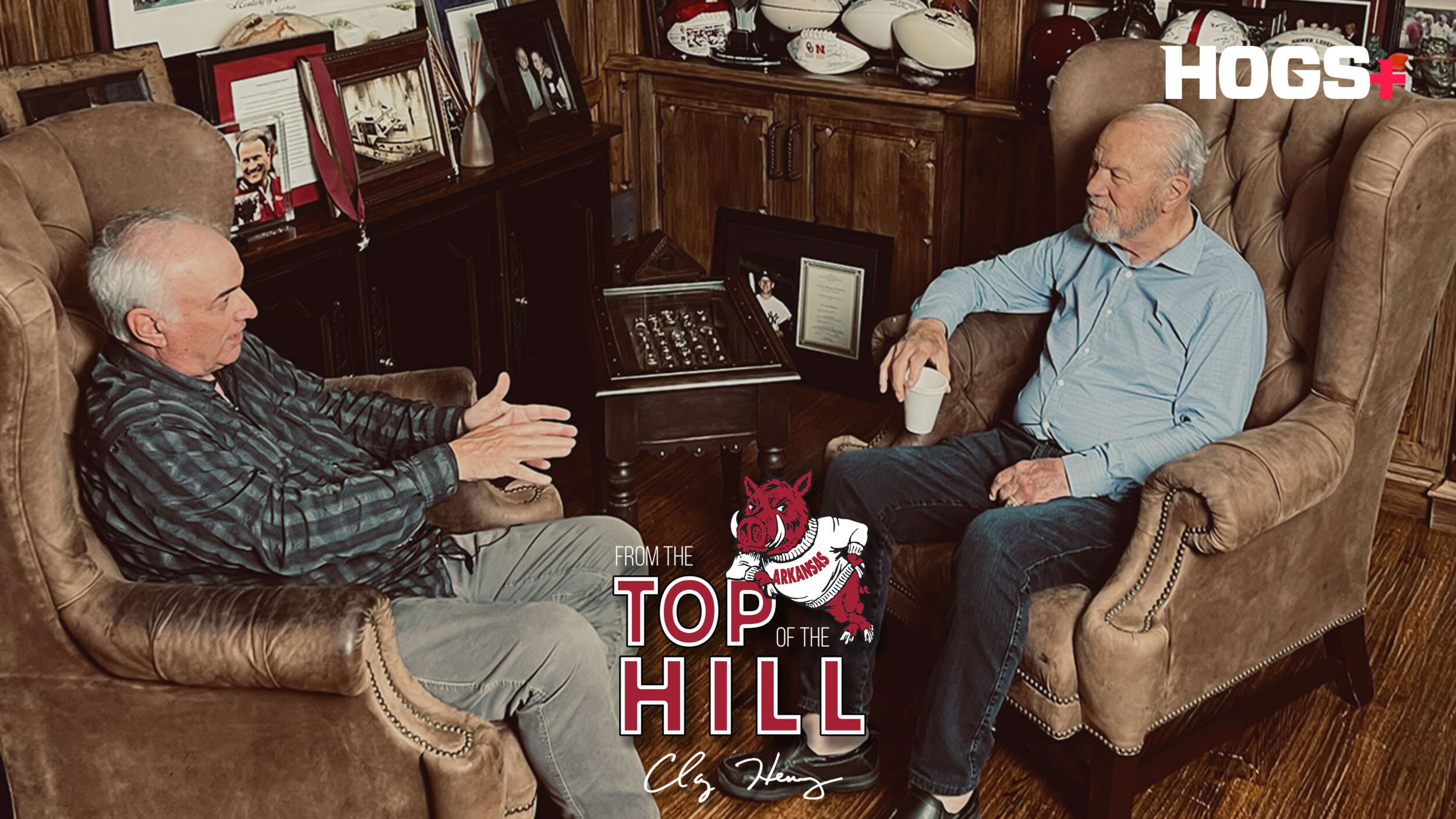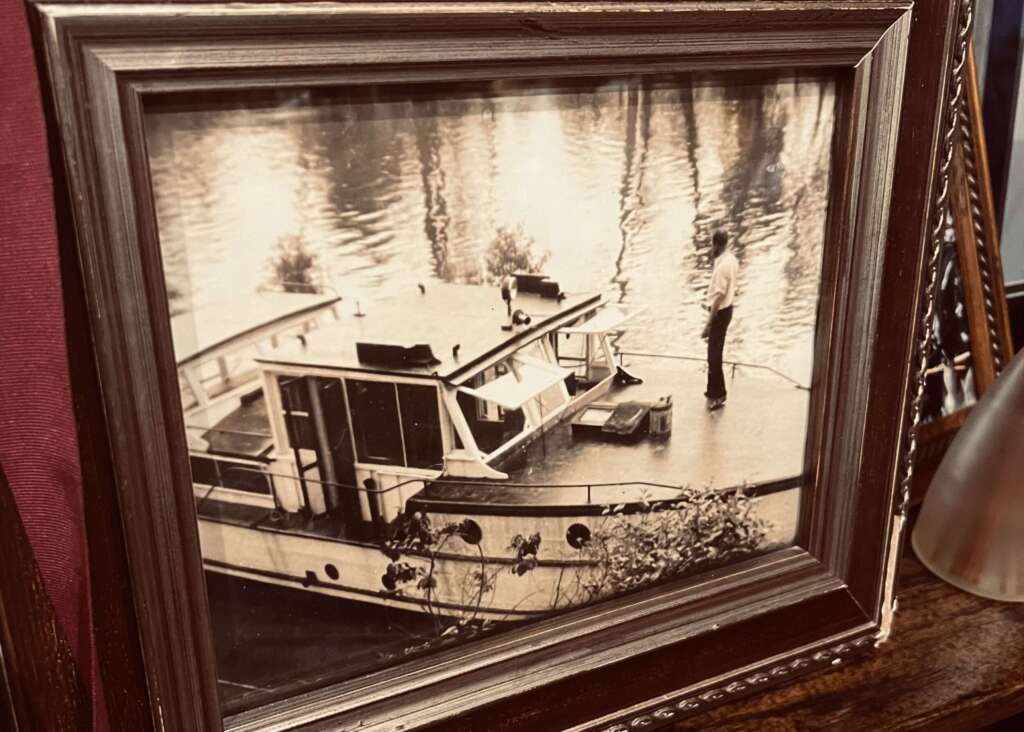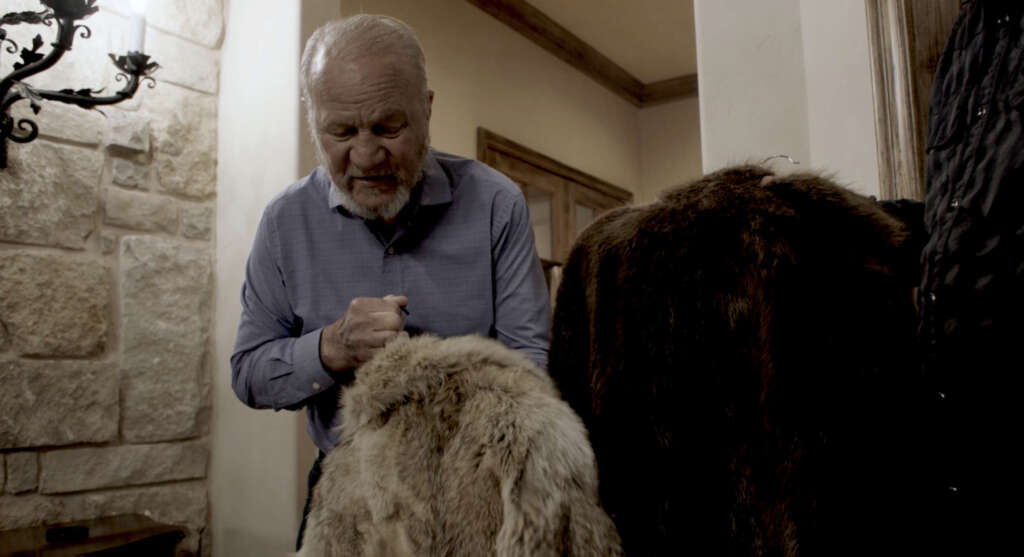

Clay Henry: Switzer is always worth the trip
Our interview ended with Barry Switzer’s pledge to “do it again in 10 years.” I hope I’m around for that. I will not be surprised if my favorite coach is still doing sit downs with old friends in his grand study.
I knew he’d agree to entertain my questions when I called last December and we finally pulled it off in early May, it was wonderful.
It was worth every bit of the six-hour trip from my home in Norfork. The anticipation was great. I wore a smile all the way home.
I always thought Switzer treated me well because of my family tree, but Switzer handles every interview the same way. He delights those asking the questions with glib answers.
I will say I’m lucky with him because I’m a Henry.
Switzer has always considered me family because of his connection to my father, the late Orville Henry. I asked him to autograph one of the two books on Switzer. I teared up when I read it after making it home. It said, “Love you and your dad.”
I knew he meant it.

“My days as a kid always started by spreading out the Arkansas Gazette and reading every word written by Orville Henry,” Switzer told the three-person TV crew from Hogs+ last May in what turned into a three-hour visit.
Switzer detailed his high school banquet in 1955, one year before my birth. Orville Henry was the keynote speaker at the cafeteria at Crossett High School.
After Switzer finished his career at Arkansas, the last two years playing for Frank Broyles, my dad returned to Crossett again. He and Broyles were there as the town presented a nice check to their favorite son on Barry Switzer Day.
“I’ve got photos of that around here somewhere,” Switzer said. “Your dad is in them.”
Switzer was team captain for the 1959 Razorbacks, playing like a future coach. His best friend Jim Mooty, the All-America tailback, shared stories years ago about the way Switzer devoured game film in preparation for each foe. He could predict the defensive look in the offensive huddle. Switzer, the center, knew the way the opposition would deploy, just like a coach.
It was during those last two years at Arkansas under Broyles that everyone learned what kind of recruiter Switzer would become as a coach, first as an assistant under Broyles at Arkansas and later under Jim Mackenzie and Chuck Fairbanks at Oklahoma, then as the three-time national champ head coach for the Sooners. He was a terrific player host and probably the life of the party.
“When a top player came for a visit at Arkansas, Coach Broyles would give them to me as the player host from our team,” Switzer said. “We’d get them all to campus.”
As an Arkansas assistant, he was given Oklahoma when Mackenzie, the defensive coordinator, was injured in a lawn mower accident. He lost several toes.
Switzer made several trips to Enid, Okla. as an Arkansas assistant to land quarterback Harry Jones, eventually his player at wingback in 1964 and ’65 when the Hogs were winning 22 straight.
“I went to Enid and watched Harry,” Switzer said. “He was tall, strong, and could really run. He would be an NFL first-rounder with Philadelphia.”
Switzer had the luxury of rotating Jones with Jim Lindsey at wingback for two seasons at Arkansas. One of the many fun parts of the interview in Switzer’s study was asking the coach to autograph a photo of him and Lindsey during a 1963 practice.
Part of the autograph was Switzer’s line, “Jim, you were a GREAT player.” He wanted the details on the successes of the Lindsey family business.
“I remember when he came back from his first year with the Vikings and took his signing bonus and bought all the land around where the Fayetteville mall is now,” Switzer said. “There was nothing out there. That was a great vision and a smart investment.”
The interview was almost all about his Arkansas days. Switzer took us all the way back to World War II. Frank, his father, was 4F because of hearing problems so he couldn’t enlist. Instead, he took the family to Los Angeles where he worked building ships.
“I played on the beaches of Malibu every day,” he said. “We’d body surf, jump off the piers. I remember coming back from the beach and everyone was honking horns. My brother and I asked why. The war was over. We said, ‘What war?’ That’s how little we were and how little we knew. We didn’t have a care in the world except swimming in the ocean.”
There is a picture on the wall of his study of a houseboat.
“I don’t recall anything about it, but it’s a great picture,” he said. “I was a baby, but my dad ran the troll bridge between Union and Ashley County and our family lived in the boat. I’ve heard them talk about it. No air conditioner. It must have been miserable.”

It’s a wonderful study. While setting up lights for the interview, our crew, led by Sawyer Radler, delighted in the many game balls, trophies, and mementos of his sterling career. Front and center was his framed Arkansas letter jacket. It’s the biggest item in the room. There is also a Super Bowl trophy from his days with Jerry Jones and the Dallas Cowboys.
Switzer was a young assistant coach at Arkansas when Jimmy Johnson and Jones played on the 1964 national title team. He told us stories about Jones totaling his car outside the dorm.
“It was my first car,” Switzer said. “I was so proud of it. I’d bought it with laundry money.”
The story goes that Jones had been given permission to borrow a different car for a date, the usual practice around the team.
“Except he got in the wrong car, my car,” Switzer said. “The key wouldn’t fit. He tried everything to get it started and left it in neutral.”
Jones got out and forgot to set the parking brake. He left in the right car. A few minutes later, Switzer’s rolled down a steep hill and eventually hit a tree.
“We didn’t realize what had happened until the next morning,” Switzer said. “No one knew how it happened, and Jerry didn’t say anything.”
Decades later at a party in Little Rock, one of their mutual friends told Switzer the story.
“I walked over to Jerry and told him that I forgive him,” Switzer said, and they hugged. “Hell, he made up for it. He hired me to coach the Cowboys and I got a Super Bowl.”
In Jimmie Tramel’s book published by Tulsa World, there are quotes from sports editor Bill Connors that compared Switzer as a young coach to Broyles. Connors said Switzer was “a glib, excitable, fertile-minded carbon copy of Broyles. His enthusiasm and passion for statistics stamped him as unusual.”
I had never heard that story, but I’ve got some that no one else has heard.
What I found in 1978 when I got to Oklahoma was the best recruiter in college football. Part of my duties as a Tulsa World college football writer was to follow recruiting. As soon as Switzer found out that was my assignment from Connors, he began to phone me regularly.
There was one interesting call when Arkansas committed Gary Anderson from Columbia, Mo., a scat back and superb punt returner. Switzer knew I covered Arkansas recruiting, too. I had connections on the Lou Holtz staff.
“Tell me how they got him,” Switzer said. “I just can’t believe they beat me on a player I really wanted. They might beat me in Arkansas, but not out of state.”
When I pointed out Anderson’s grandmother was from Bearden, he said, “I knew it had to be something like that.”
Switzer had no rival in recruiting and despite what some thought, he did not need to buy players. He did not need anything like the current recruiting weapon, Name, Image and Likeness funds. He outworked everyone else and it wasn’t close.
“The key to recruiting is your players,” he said. “My players recruited for me. A player who comes on a visit is going to find out if it’s the right fit from the current players. My players were my best recruiters.”
My favorite – and it was mentioned to me when Switzer signed running back Eric Mitchel and defensive tackle Curtice Williams from Pine Bluff – was the Switzer attire for a cold January recruiting trip.
Switzer strolled through Pine Bluff High School wearing a fur coat. He still owns two. He pulled them out of his closet, one of beaver and another of coyote. He said he doesn’t wear them anymore. They are incredibly heavy and his much-repaired lower back can’t carry them.

“I didn’t do it for a splash,” Switzer said. “Have you ever worn one? They are the warmest coats in the world, but they are heavy. On a cold day in January, I wore fur.”
I was there when Switzer modeled a fur coat for the first time, a full-length mink. When Billy Sims won the Heisman, I was on a plane full of OU coaches, players, and boosters from Oklahoma City to New York. Switzer made a grand entrance wearing a coat borrowed from an Oklahoma furrier.
“I did not buy that one,” Switzer said. “It was the first time I’d ever worn one. One funny story, it was expensive, more than what I could spend. I took it back after the New York trip. When I walked into the hotel, every single employee was giving it the eye. I got to worrying. So I slept with it under the covers.”
Switzer wishes he had bought that coat. He might have bought the entire store of mink coats had he not failed on a promise to stockman Jack Stephens from Little Rock after a gift in 1969.
“I regret that,” Switzer said. “Jack told me to put those 100 shares of the first Walmart stock offering into a lock box and forget about it for 20 years. He said it would be my retirement and worth millions. It split in three weeks and I sold it for $16 a share.
“It would be worth billions today. I had a chance to buy $10,000 of Nike stock when Phil Knight took that company public. That’s another regret. I think that would be worth a lot now, too.”
Switzer wonders if there might be some regret on the latest big move by the Sooners, joining his alma mater in the SEC. He knows it’s going to be tough.
“It will be difficult every week,” he said. “I tell everyone here it’s like playing Texas every week. There will be some seven-win seasons (for OU).”
There will be some games against the Razorbacks. Switzer knows that is not easy. He was 1-1 against the Hogs. He lost to the Holtz-coached Hogs, 31-6, in the 1978 Orange Bowl, but beat Ken Hatfield’s team in Miami, 42-6, after the 1985 season.
“I knew how good (Arkansas) was in 1978,” he said. “Lou changed their blocking scheme and we had a hard time stopping them. But they were good.
“The second one, in the locker room just before the game, was the only time I ever asked my players to win a game for me. I needed that and they played great. It was over pretty quickly. After the game, Kenny (Hatfield) thanked me for calling off (his team).”
Switzer said he never imagined himself as the Arkansas coach and quickly turned down Broyles in late November of 1976.
“He called me when he decided to retire,” he said. “If you are a young assistant at your alma mater, you might think (coaching there) is something you’d want to do. But I never did once I got to Oklahoma.
“We were recruiting so well. I told him no thanks.”
I thanked Switzer as he walked me out of his home after a great morning in his study. Behind us hung his Arkansas letter jacket, his free pass home as a hitchhiker.
“Oh, it was fun,” Switzer said of the interview. “Let’s do it again in 10 years.”
🚨 ICYMI 🚨
— Hogs Plus (@HogsPlus) August 2, 2024
🎥 Get ready for the newest Hogs+ film — Switzer: a three-part original film chronicling the Hall of Fame life and career of Barry Switzer
Premiering August 8 pic.twitter.com/LuL7kGaijx
